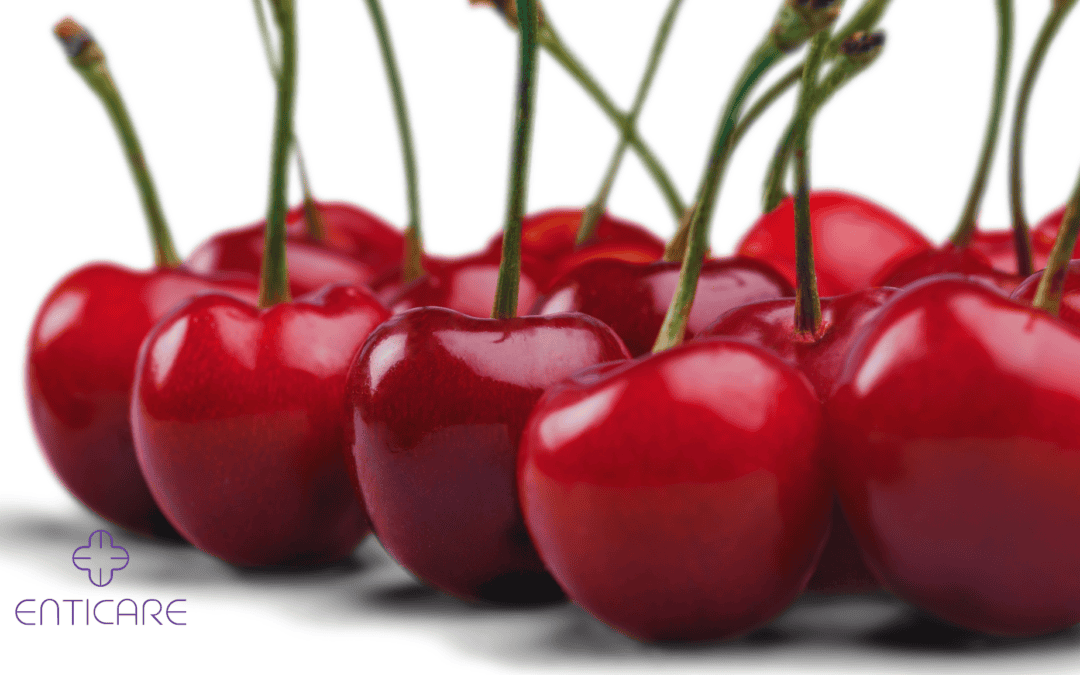Cherry allergies, while less common than other food allergies, can still cause significant discomfort and health issues for those affected. Understanding how to spot the signs, recognize potential risks, and implement effective treatment strategies can help manage the condition for those who are allergic to cherry. This comprehensive guide provides detailed information about cherry allergies to empower individuals in managing their health.
Recognizing Cherry Allergy Symptoms
Identifying symptoms of an allergy to cherries early is crucial for effective management and prevention of severe reactions. Symptoms can vary in severity and may affect different systems in the body.
Common Symptoms of Oral Allergy Syndrome
- Oral Allergy Syndrome (OAS): Individuals with cherry allergies may experience itching, swelling, or tingling in the mouth, lips, or throat shortly after consuming raw cherries. Mild symptoms often manifest as oral allergy syndrome (OAS), causing discomfort around the mouth and face. This reaction occurs due to cross-reactivity with pollen allergens.
- Gastrointestinal Symptoms: Nausea, vomiting, abdominal pain, and diarrhea can occur after eating cherries. These symptoms indicate the digestive system’s response to the allergen.
- Skin Reactions: Hives, eczema, or itching can develop after contact with cherries. Skin reactions often appear within minutes to hours of exposure and can cause significant discomfort.
Severe Symptoms
- Anaphylaxis: In severe cases, cherry allergies can lead to anaphylaxis, a life-threatening reaction that includes difficulty breathing, swelling of the throat, and a sudden drop in blood pressure. Immediate medical attention is required.
- Angioedema: This condition involves deep swelling of the skin, particularly around the eyes, lips, and throat. Angioedema can be painful and may affect breathing if severe.
- Respiratory Issues: Wheezing, coughing, and shortness of breath can occur as part of a severe allergic reaction to cherries.
Diagnosing Cherry Allergy
Proper food allergy diagnosis of a cherry allergy is essential for effective management. Several diagnostic tests, such as skin prick or blood tests, can confirm the presence of an allergy and help determine the appropriate treatment.
Diagnostic Tests for Food Allergy Diagnosis
- Skin Prick Test: This involves placing a small amount of cherry extract on the skin and making a tiny prick. A reaction, such as redness or swelling, indicates an allergy.
- Blood Test: A blood test measures the level of IgE antibodies specific to cherry proteins. Elevated levels of these antibodies suggest an allergy.
- Oral Food Challenge: Conducted under medical supervision, an oral food challenge involves consuming increasing amounts of cherries to observe any allergic reactions. This test helps confirm the diagnosis and assess severity.
Understanding Risks Associated with Cherry Allergies
Several risk factors can increase the likelihood of developing a cherry allergy or experiencing severe reactions. Cross-reactivity with birch pollen can also play a role in cherry allergies. Understanding these risks helps in prevention and effective management.
Key Risk Factors
- Family History: A family history of allergies, particularly food allergies or asthma, increases the risk of developing a cherry allergy.
- Existing Allergies: Individuals with other food allergies or allergic conditions, such as hay fever or eczema, are at higher risk. Individuals with a pollen allergy, particularly to birch pollen, may also experience reactions to cherries due to cross-reactivity. Cross-reactivity with pollen allergens can also play a role.
- Age and Geography: Cherry allergies can develop at any age but are more common in children. In regions where cherry consumption is high, there may be an increased prevalence of cherry allergies.
Treating Cherry Allergies
Effective treatment involves avoiding cherries and being prepared for potential allergic reactions. For those with a primary cherry allergy, avoiding cherries and being prepared for potential allergic reactions is crucial. Various treatment strategies can help manage symptoms and reduce the risk of severe reactions.
Management Strategies
- Avoidance: The primary strategy for managing cherry allergies is to avoid consuming cherries and products containing cherries. This includes checking ingredient labels and asking about food preparation methods when dining out. Secondary cherry allergy occurs due to cross-reactivity with tree pollen proteins, leading to allergic reactions.
- Emergency Preparedness: Carrying an epinephrine auto-injector (EpiPen) is essential for individuals at risk of severe reactions. Ensure you know how to use it and seek immediate medical help if symptoms of anaphylaxis occur.
- Consultation with an Allergist: Regular consultations with an allergist can help monitor your allergy and provide updated management strategies. Your allergist can also offer guidance on the latest treatments and preventive measures.
For personalized advice and management plans, schedule an appointment with our specialists at Enticare.
Preventing Cherry Allergy Reactions
Preventive measures play a crucial role in managing cherry allergies and reducing the risk of allergic reactions. Pollen food allergy syndrome (PFAS) illustrates the connection between plant pollens and specific food allergies, such as cherries. Implementing these strategies can help maintain your health and well-being.
Key Preventive Measures
- Read Labels Carefully: Always check ingredient labels for the presence of cherries or cherry derivatives. This includes packaged foods, sauces, and baked goods.
- Communicate Your Allergy: Inform restaurant staff and food preparers about your cherry allergy to avoid cross-contact with cherries during food preparation.
- Educate Yourself and Others: Learn about common sources of cherries in foods and share this information with family and friends to ensure they understand the importance of avoiding cherries.
Conclusion
Understanding cherry allergies, including how to spot the signs, recognize risks, and implement effective treatment strategies, empowers you to manage your condition confidently. By being aware of symptoms, obtaining a proper diagnosis, and taking proactive steps in treatment and prevention, you can effectively handle a cherry allergy and maintain your health and quality of life.
If you suspect you have a cherry allergy or need expert guidance on managing it, schedule an appointment with our specialists at Enticare. Our team is dedicated to providing personalized care and support to help you navigate your allergy with confidence and ease.

